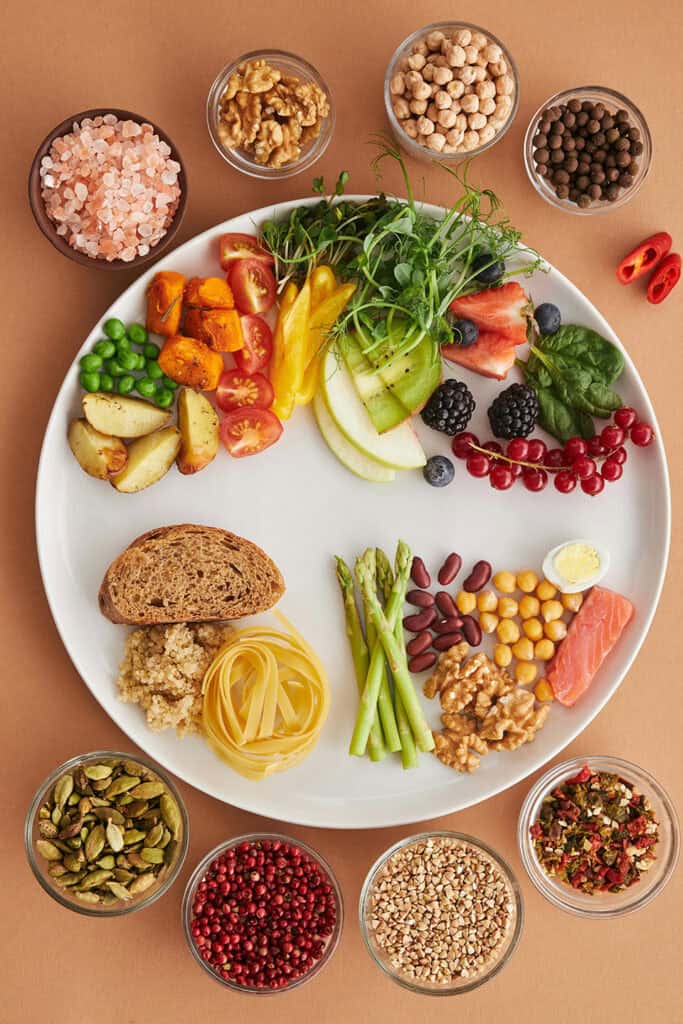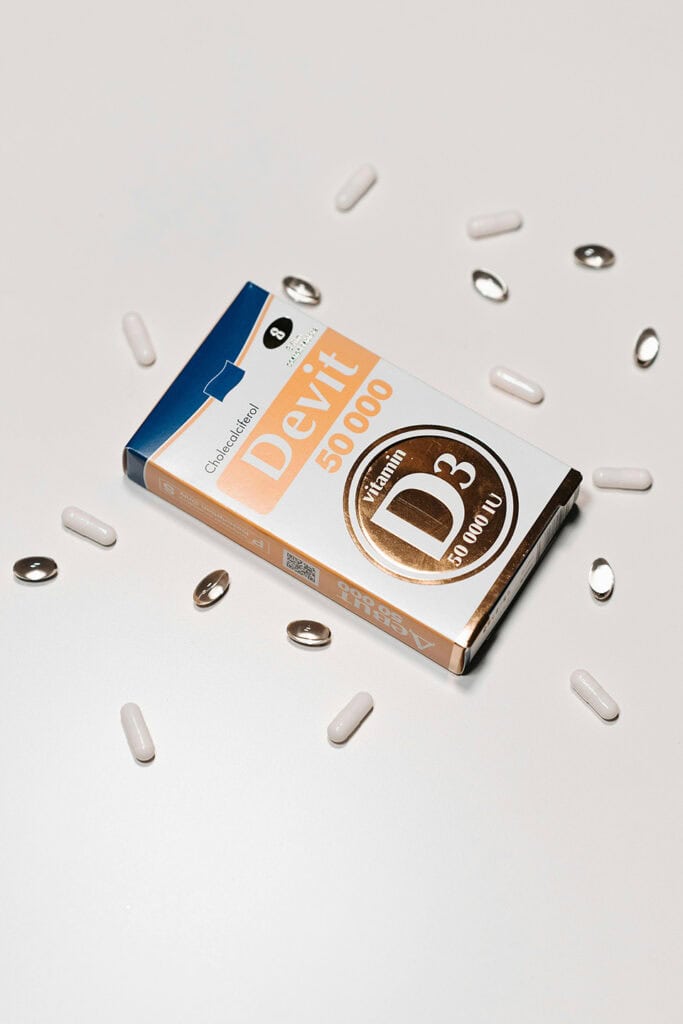
Are you struggling with fatigue, stress, or health issues? You’re not alone. Many face these challenges, and it’s often related to diet and nutrition.
You are the hero in your own health journey, and we understand how overwhelming it can be to navigate dietary choices and their impact on your well-being.
We’re here to guide you with expert advice and practical tips. Our insights are backed by experience and research to help you make informed decisions about your diet.
In this article, we’ll outline 8 simple reasons that improve your diet for better energy, mental clarity, and overall health.
Start your transformation today by diving into our guide. Imagine a life where you feel energized, focused, and healthy—this is within your reach.
Here Are 8 Reasons Why Diet Is Important:
- Overall and Mental Health: A balanced diet improves mood and supports mental well-being by providing essential nutrients.
- Energy Levels and Nutritional Foundations: Proper nutrition ensures sustained energy levels and stable blood sugar throughout the day.
- Weight Management: Eating a balanced diet helps regulate weight and prevents excess calorie consumption.
- Disease Prevention and Immune System Support: Nutrient-rich foods strengthen the immune system and lower the risk of chronic diseases.
- Longevity and Aging: A diet high in antioxidants and healthy fats can slow aging and promote a longer, healthier life.
- Skin and Hair Health: Essential nutrients support healthy skin and hair, improving appearance and reducing damage.
- Reduced Cancer Risks: A diet rich in fruits, vegetables, and whole grains may lower the risk of certain cancers.
- Improve Memory: Foods high in omega-3s and antioxidants support cognitive function and enhance memory.
See also How to Love Your Own Body? 8 Practical Tips to Boost Body Image and Self-Esteem
1. Overall and Mental Health
A healthy diet is essential for both overall and mental health. Consuming a balanced diet rich in whole foods and low in processed meats and trans fats supports wellness by providing essential nutrients that help maintain optimal body function.
Healthy eating helps regulate blood pressure, reduces the risk of heart disease, and prevents metabolic syndrome.
Additionally, a diet low in harmful bacteria and toxins boosts mental health by supporting brain function, improving mood, and reducing the risk of mental disorders. While dietary supplements can complement a healthy balanced diet, relying on whole foods ensures the best nutrient absorption and long-term health benefits.
Maintaining a nutritious diet is crucial for overall well-being and mental resilience.
Here are 10 Tips for Adding to Your Diet for Mental and Overall Health:
- Dark Leafy Greens: Include spinach, kale, and other greens for essential vitamins and minerals.
- Fatty Fish: Add salmon, mackerel, and sardines for omega-3 fatty acids that support brain health.
- Whole Grains: Incorporate oats, quinoa, and brown rice for sustained energy and digestive health.
- Nuts and Seeds: Include almonds, walnuts, and flaxseeds for healthy fats and antioxidants.
- Fruits and Vegetables: Consume a variety of colorful produce for a wide range of vitamins and antioxidants.
- Probiotic Foods: Add yogurt, kefir, and fermented foods to support gut health and mood regulation.
- Lean Proteins: Include chicken, turkey, and legumes for muscle health and neurotransmitter support.
- Berries: Eat blueberries, strawberries, and other berries for cognitive function and inflammation reduction.
- Dark Chocolate: Enjoy in moderation for its antioxidants and mood-boosting properties.
- Herbal Teas: Drink chamomile or green tea for relaxation and mental clarity.
2. Energy Levels and Nutritional Foundations

Energy levels and nutritional foundations are crucial aspects of a balanced diet. Consuming nutrient-dense foods, including plant-based diets, helps maintain steady blood glucose levels and provides essential nutrients like vitamins and minerals.
Adequate vegetable consumption and the use of healthier alternatives, such as vegetable oils, support sustained energy throughout the day. Incorporating enough vitamin D into your diet is vital for maintaining energy and overall health.
A well-rounded diet is also a form of self-love, forming a key part of your self-love routine by fueling your body with what it needs to thrive. Prioritizing energy intake through proper nutrition lays the foundation for an active, vibrant life.
Here are 10 diet options for Building a Strong Body and Fueling Your Day:
- High-Protein Diet: Incorporates lean meats, fish, eggs, and legumes to support muscle growth and repair.
- Balanced Macros Diet: Focuses on a healthy balance of proteins, fats, and carbohydrates to fuel daily activities and maintain energy levels.
- Plant-Based Diet: Includes a variety of vegetables, fruits, whole grains, and plant proteins, promoting overall health and sustainable energy.
- Low-Carb Diet: Reduces carbohydrate intake to improve energy stability and promote fat burning for weight management.
- Mediterranean Diet: Emphasizes whole grains, lean proteins, healthy fats like olive oil, and plenty of fruits and vegetables for a well-rounded nutrition.
- Anti-Inflammatory Diet: Incorporates foods rich in antioxidants and omega-3 fatty acids to reduce inflammation and support muscle recovery.
- Whole Foods Diet: Focuses on consuming unprocessed, nutrient-dense foods for optimal energy and overall wellness.
- Hydration-Focused Diet: Ensures adequate water intake alongside a balanced diet to maintain energy and support bodily functions.
- Pre-Workout Nutrition: Consumes easily digestible carbohydrates and protein before exercise to enhance performance and recovery.
- Post-Workout Recovery Diet: Includes a mix of protein and carbohydrates after exercise to replenish glycogen stores and repair muscle tissue.
3. Weight Management
Weight management is crucial for maintaining overall health and well-being. A balanced diet plays a significant role in achieving and sustaining a healthy weight. Incorporating essential nutrients from diverse food groups, such as lean protein, dark leafy greens, and fresh fruit, helps regulate body weight.
Choosing healthier alternatives like olive oil over trans fats and limiting red and processed meats can reduce harmful bacteria and improve fat quality, such as monounsaturated fats. Monitoring salt and sodium intake, along with adhering to dietary plans like the DASH diet, aids in weight loss and lowers risk factors.
Following these strategies not only supports weight management but also enhances overall health and gain confidence.
Here is a list of 10 effective strategies for weight management:
- Stress Management: Utilize relaxation techniques to avoid emotional eating.
- Portion Control: Monitor serving sizes to prevent overeating.
- Mindful Eating: Focus on your food and eat slowly to improve digestion and satisfaction.
- Regular Physical Activity: Incorporate both cardio and strength training exercises.
- Meal Planning: Prepare meals in advance to ensure access to healthy options.
- Behavioral Strategies: Use tools like food diaries and set achievable goals.
- Healthy Snacking: Choose nutrient-dense snacks like fruits, nuts, and yogurt.
- Hydration: Drink plenty of water throughout the day to stay hydrated and control appetite.
- Balanced Diet: Include a variety of foods from all food groups for comprehensive nutrition.
- Sleep Quality: Ensure adequate sleep to regulate hunger hormones and support metabolism.
4. Disease Prevention and Immune System Support
A balanced diet plays a crucial role in disease prevention and supporting the immune system. By maintaining healthy blood glucose levels and managing high blood pressure, a nutritious diet helps reduce the risk of developing metabolic syndrome and coronary heart disease.
It also contributes to overall cardiovascular health, lowering the risk of heart disease and related conditions. Additionally, proper nutrition supports bone health and may help mitigate cognitive decline.
By addressing these risk factors, a well-rounded diet enhances overall well-being and helps prevent chronic diseases. Focusing on whole foods, low in saturated fats and rich in essential nutrients, is key to having a robust immune system and reducing the likelihood of serious health issues.
Here are specific dietary options to enhance immune function and prevent diseases:
- Green Tea: Contains catechins and polyphenols that boost immune function and protect against infections.
- Citrus Fruits: High in vitamin C, essential for immune defense. Examples include oranges, grapefruits, and kiwis.
- Garlic: Contains allicin, which has antimicrobial and immune-boosting properties.
- Hydration: Drink herbal teas such as ginger or chamomile to stay hydrated and support immune function while offering additional anti-inflammatory benefits.
- Salmon: A great source of omega-3 fatty acids, which reduce inflammation and support heart health.
- Greek Yogurt: Contains probiotics that enhance gut health and support the immune system.
- Pumpkin Seeds: High in zinc, which is crucial for immune cell function and wound healing.
- Turmeric: Contains curcumin, a compound with anti-inflammatory and antioxidant effects.
- Chia Seeds: Rich in omega-3 fatty acids and fiber, which help reduce inflammation and support cardiovascular health.
- Legumes: Include chickpeas, black beans, and lentils, which provide protein and fiber to support overall immune health.
5. Longevity and Aging

A well-balanced diet plays a crucial role in promoting longevity and healthy aging. Consuming a variety of vitamins and minerals helps maintain bone health and supports overall bodily functions. For instance, a diet rich in vitamin D and calcium can prevent bone density loss, which is essential for aging individuals.
Plant-based diets often provide the necessary nutrients and antioxidants that contribute to a healthier body weight and reduced risk of chronic diseases.
Maintaining a healthy diet and weight can lead to numerous health benefits, including better heart health and improved energy levels. Self-care reminders to eat a balanced diet and stay hydrated can significantly impact long-term health and well-being.
6. Skin and Hair Health

Diet plays a crucial role in maintaining healthy skin and hair. A balanced diet rich in diverse, nutrient-dense foods supports optimal self-care and beauty. Consuming plenty of fruits and vegetables provides essential vitamins and antioxidants, promoting healthy skin and reducing the risk of premature aging.
Incorporating healthy fats, such as olive oil, and low-fat dairy products supports skin hydration and elasticity. Dietary fiber from starchy foods aids in overall well-being and can help prevent cardiovascular disease. Avoiding a poor diet, which lacks variety and essential nutrients, is crucial for healthy growth and maintaining good health.
By focusing on eating healthy foods and incorporating different food components, you can achieve glowing skin and strong, vibrant hair.
Here are some 10 nutrient-rich foods that can benefit both skin and hair health:
- Avocado: Rich in healthy fats, vitamins E and C, and antioxidants that nourish the skin.
- Sweet Potatoes: Packed with beta-carotene, which converts to vitamin A and supports skin health.
- Tomatoes: High in lycopene, which helps protect the skin from UV damage.
- Spinach: Rich in vitamins A, C, and E, and antioxidants that support skin regeneration.
- Goji Berries: Packed with vitamins, minerals, and antioxidants that support skin elasticity and health.
- Greek Yogurt: Contains protein and vitamin B5 (pantothenic acid) that helps improve hair texture.
- Carrots: High in beta-carotene, which supports a healthy scalp and promotes hair growth.
- Eggs: Provide protein and biotin, which are important for hair growth and strength.
- Quinoa: A complete protein source that contains all essential amino acids for hair repair and growth.
- Citrus Fruits: Oranges, lemons, and grapefruits are high in vitamin C, crucial for collagen production.
7. Reduced Cancer Risks

A balanced diet is crucial for reduced cancer risk, significantly influencing overall health. Consuming different foods, including plenty of fruit and vegetables, can enhance heart health and manage high blood pressure. Eating a variety of starchy foods also supports healthy growth and cellular function.
A poor diet, on the other hand, can contribute to various health issues, including an increased risk of cancer.
Emphasizing a diet rich in diverse, nutrient-dense foods is essential for maintaining good health and minimizing disease risk. By prioritizing these dietary practices, individuals can foster better health outcomes and potentially lower cancer risk.
8. Improve Memory
A healthy, balanced diet is crucial for improved memory and cognitive function. Risk factors such as cognitive decline and coronary heart disease can be mitigated through healthy eating and maintaining a healthy weight.
A diet rich in fruits, vegetables, and whole grains supports brain health and reduces the risk of heart disease. For optimal results, consider integrating dietary supplements known for enhancing memory.
The DASH diet, designed to combat high blood pressure, also aids in preventing cognitive decline. Weight loss through healthy eating contributes to a healthier brain and reduces the risk of conditions that impair memory and cognitive function.
Here’s a list of 10 dietary supplements that are often associated with improved memory:
- Fish Oil (Omega-3 Fatty Acids): Supports brain health and reduces cognitive decline.
- Ginkgo Biloba: May enhance memory and cognitive function by improving blood flow to the brain.
- Bacopa Monnieri: Known for its potential to improve memory and cognitive performance.
- Curcumin: The active compound in turmeric, which has anti-inflammatory and antioxidant properties that may benefit brain health.
- Vitamin D: Supports overall brain function and may help reduce the risk of cognitive decline.
- Vitamin B12: Essential for nerve function and may prevent memory loss associated with deficiency.
- Folic Acid (Vitamin B9): Important for brain health and may help reduce the risk of cognitive decline.
- Rhodiola Rosea: An adaptogen that may improve cognitive function and reduce mental fatigue.
- Phosphatidylserine: A phospholipid that supports cell membrane function and cognitive health.
- N-acetylcysteine (NAC): An antioxidant that may support brain health and protect against oxidative stress.
See also Life Planning: Setting Goals, Defining Values, and Finding Purpose
Why Is Diet Important? A Recap
Incorporating healthy eating habits into your lifestyle is vital for maintaining a healthy body weight and reducing the risk of cardiovascular disease.
Consuming a diet rich in unsaturated fats, such as those found in oily fish and nuts, while avoiding saturated and trans fats from fried foods and certain dairy products, can significantly lower the risk of heart disease.
Opting for dairy alternatives and whole grains over high-fat dairy and refined carbs promotes a balanced diet and supports overall health.
The Mediterranean diet, known for its focus on healthy foods and fats, offers numerous health benefits, including weight management and improved heart health. Following these principles of eating healthy helps in achieving long-term wellness and preventing weight gain.


